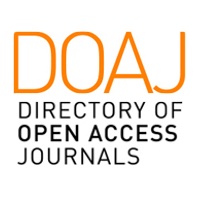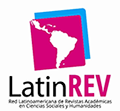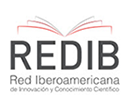POTENCIALIDADES E LIMITAÇÕES DA IMPLEMENTAÇÃO DO ENSINO DE CIÊNCIAS POR INVESTIGAÇÃO SEGUNDO PROFESSORAS UNIDOCENTES
DOI :
https://doi.org/10.31639/rbpfp.v17.i36.e808Mots-clés :
Ensino de ciências, Formação continuada, Anos iniciais do Ensino Fundamental, World Café, Percepção docenteRésumé
Este estudo propõe explorar as concepções e práticas de 13 professoras unidocentes de uma escola pública da cidade de São Paulo, visando compreender as barreiras e possibilidades enfrentadas por essas educadoras no desenvolvimento de atividades investigativas. Para a coleta de dados adotou-se a metodologia do World Café, método colaborativo de aprendizado que estimula a troca de ideias entre as participantes. As discussões foram conduzidas em pequenos grupos, permitindo que elas compartilhassem suas vivências e ideias sobre o ensino de ciências. As discussões foram transcritas e analisadas com base na análise de conteúdo. Os resultados expõem que o domínio conceitual ainda é um grande obstáculo para as participantes, dificultando a reflexão e a elaboração de atividades investigativas. Porém, as professoras assentiram as vantagens do ensino por investigação, como a promoção de habilidades científicas e aprendizagem menos memorística. O estudo indica um potencial significativo para a implementação dessa abordagem, apesar das dificuldades.
Téléchargements
Références
ADESSO, M. G.; CAPONE, R.; FIORE, O. Inquiring electricity in primary school: A non-formal teaching education case study. Journal of Physics: Conference Series, v. 2297, n. 1, p. 012022, 2022. DOI: https://doi.org/10.1088/1742-6596/2297/1/012022
BARDIN, L. Análise de conteúdo. São Paulo: Edições 70, 2011. 229 p.
BORAN, M. U. R. A. T.; KARAKUŞ, F. The mediator role of critical thinking disposition in the relationship between perceived problem-solving skills and metacognitive awareness of gifted and talented students. Participatory Educational Research, v. 9, n. 1, p. 61-72, 2022. DOI: https://doi.org/10.17275/per.22.4.9.1
CAIXETA, S.S. UNIDOCÊNCIA: uma análise do trabalho pedagógico de professoras dos anos iniciais do ensino fundamental. Dissertação. (Mestrado em Educação). Faculdade de Educação. Universidade Federal de Uberlândia, 2017.
CALALB, M. Correlation between visible teaching and inquiry-based learning. In: Proceedings of the World Conference on Teaching and Education, 2019, pp. 18-20, 2019. DOI: https://doi.org/10.33422/worldcte.2019.09.566
CAPONE, R.; ADESSO, M. G.; FIORE, O. Lesson Study in Physics Education to Improve Teachers’ Professional Development. In: ADESSO, M. G.; FIORE, O. (Eds.). Physics Teacher Education: What Matters? Cham: Springer International Publishing, 2022, p. 125-136. DOI: https://doi.org/10.1007/978-3-031-06193-6_9
CARPINETI, M. Theatre as a Tool for an Inquiry-Based Physics Teaching. In: VAROU, O. (Ed.). Teaching, Research, Innovation and Public Engagement - New Paradigms in Healthcare. Springer, Cham, 2023. DOI: https://doi.org/10.1007/978-3-031-22452-2_6
CARVALHO, A. M. P. Fundamentos Teóricos e Metodológicos do Ensino por Investigação. Revista Brasileira de Pesquisa em Educação em Ciências, v. 18, n.3, p. 765-794, 2018. DOI: https://doi.org/10.28976/1984-2686rbpec2018183765
CRAWFORD, B. A. From inquiry to scientific practices in the science classroom. In: LEADERMAN, N. G.; ABELL, S. K. (Eds.). Handbook of research on science education, volume II. Routledge, 2014. p. 515–541. (STUDIES IN SCIENCE EDUCATION, v. 33).
CRAWFORD, B. A.; CAPPS, D. K. Teacher cognition of engaging children in scientific practices. In: DORI, Y. J.; MEVARECH, Z. R.; BAKER, D. R. (Eds.). Cognition, metacognition, and culture in STEM education. Springer, 2018. p. 9–32. DOI: https://doi.org/10.1007/978-3-319-66659-4_2
CREMIN, T.; GLAUERT, A.; CRAFT, A.; COMPTON, A.; STYLIANIDOU, F. Creative Little Scientists: Exploring Pedagogical Synergies between Inquiry-Based and Creative Approaches in Early Years. Science Education, v. 43, n. 4, p. 404-419, 2015. DOI: https://doi.org/10.1080/03004279.2015.1020655
CRESWELL, J.W. Projeto de pesquisa: métodos qualitativos, quantitativo e misto. Porto Alegre: Artmed, 2010.
EICK, C. J.; STEWART, B. Dispositions supporting elementary interns in the teaching of reform-based science materials. Journal of Science Teacher Education, v. 21, p. 783–800, 2010. DOI: https://doi.org/10.1007/s10972-009-9174-3
ESTACIO, E.; KARIC, T. The World Café: An innovative method to facilitate reflections on internationalisation in higher education. Journal of Further and Higher Education, v. 40, p. 731-745, 2016. DOI: https://doi.org/10.1080/0309877X.2015.1014315
FREITAS, M. C.; FREITAS, B. M.; CAVALCANTE, G. F. A importância da escola para crianças em contexto familiar monoparental. Ensino em Perspectivas, v. 2, n. 1, p. 1-13, 2021.
FURTAK, E.; SEIDEL, T.; IVERSON, H.; BRIGGS, D. Experimental and quasi-experimental studies of inquiry-based science teaching. Review of Educational Research, v. 82, p. 300-329, 2012. DOI: https://doi.org/10.3102/0034654312457206
GALIAN, C. V. A.; ARROIO, A. Early science education and its relevance. Problems of Education in the 21st Century, v. 45, p. 4-9, 2012. DOI: https://doi.org/10.33225/pec/12.45.04
GARCÍA-CARMONA, A. From inquiry-based science education to the approach based on scientific practices: A critical analysis and suggestions for science teaching. Science & Education, v. 29, n. 2, p. 443-463, 2020. DOI: https://doi.org/10.1007/s11191-020-00108-8
GARCÍA-RUIZ, C.; LUPIÓN-COBOS, T.; BLANCO-LÓPEZ, Á. Effects of an inquiry-based science education training program on pre-service teachers. A mixed-methods case study. EURASIA Journal of Mathematics, Science and Technology Education, v. 18, n. 12, 2022. DOI: https://doi.org/10.29333/ejmste/12578
KOUDLEKOVA, V. IBSE in physics at secondary level during distance education. In: AIP Conference Proceedings, v. 2458, n. 1, maio de 2022. AIP Publishing. DOI: https://doi.org/10.1063/5.0078249
KUHN, D.; BLACK, J.; KESELMAN, A.; KAPLAN, D. The development of cognitive skills to support inquiry learning. Cognition and Instruction, v. 18, p. 495-523, 2000. DOI: https://doi.org/10.1207/S1532690XCI1804_3
LEE, H. Inquiry-based teaching in second and foreign language pedagogy. Journal of Language Teaching and Research, v. 5, p. 1236-1244, 2014. DOI: https://doi.org/10.4304/jltr.5.6.1236-1244
LEE, O.; HART, J. E.; CUEVAS, P.; ENDERS, C. Professional development in inquiry-based science for elementary teachers of diverse student groups. Journal of Research in Science Teaching, v. 41, p. 1021–1043, 2004. DOI: https://doi.org/10.1002/tea.20037
LOCATELLI, C.W.; TESTONI, L.A. Plataformas digitais e o planejamento em ciências: saberes mobilizados por professores unidocentes. REAMEC - Rede Amazônica de Educação em Ciências e Matemática, Cuiabá, v. 12, e24065, jan./dez., 2024. DOI: https://doi.org/10.26571/reamec.v12.17446
LOCATELLI, S. W.; TESTONI, L. A.; JAMES, A. Across the ocean: contributions of inquiry-based learning in Brazilian and South Africans teachers’ perceptions. Intermeio (UFMS), v. 29, p. 1-20, 2023. DOI: https://doi.org/10.55028/intermeio.v29i57.18619
LOCATELLI, S. W. Using alternative strategy for implementing simple investigative activities to learn chemistry in the classroom. Natural Science Education, v. 18, p. 87-92, 2021. DOI: https://doi.org/10.48127/gu-nse/21.18.87
LÖHR, K.; WEINHARDT, M.; SIEBER, S. The “World Café” as a participatory method for collecting qualitative data. International Journal of Qualitative Methods, v. 19, 2020. DOI: https://doi.org/10.1177/1609406920916976
MANOUCHEHRI, A. Developing teaching knowledge through peer discourse. Teaching and Teacher Education, v. 18, p. 715-737, 2002. DOI: https://doi.org/10.1016/S0742-051X(02)00030-6
MAXIMO-PEREIRA, M. CUNHA, A. M. O professor que desenvolve o ensino de ciências por investigação: o que dizem as pesquisas? INVESTIGAÇÕES EM ENSINO DE CIÊNCIAS (ONLINE), v. 26, p. 134-156, 2021. DOI: https://doi.org/10.22600/1518-8795.ienci2021v26n3p134
MCDONALD, S.; BUTLER SONGER, N. Enacting classroom inquiry: Theorizing teachers’ conceptions of science teaching. Science Education, v. 27, p. 45–60, 2008.
MURPHY, C.; MALLON, B.; SMITH, G.; KELLY, O.; PITSIA, V.; MARTINEZ SAINZ, G. The influence of a teachers’ professional development programme on primary school pupils’ understanding of and attitudes towards sustainability. Environmental Education Research, v. 27, n. 7, p. 1011-1036, 2021. DOI: https://doi.org/10.1080/13504622.2021.1889470
OECD. PISA 2024 Strategic Vision and Direction for Science. Disponível em: https://www.oecd.org/pisa/publications/PISA-2024-Science-Strategic-Vision-Proposal.pdf. Acesso em: 22 set. 2023.
OZÓRIO, F. J. D. G.; MUNIZ, Q. H. M.; CAVALCANTE, P.; CRUZ, B. D. S; PAIM, I. M.; GOMES, R. V. B. World Café: metodologia ativa para a compreensão da Política Nacional de Educação Especial na perspectiva da educação inclusiva. Brazilian Journal of Development, v. 6, p. 37858-37876, 2020. DOI: https://doi.org/10.34117/bjdv6n6-355
PALÚ, J. A crise do capitalismo, a pandemia e a educação pública brasileira: reflexões e percepções. In: Desafios da educação em tempos de pandemia. Cruz Alta: Ilustração, 2020, p. 87-106. DOI: https://doi.org/10.46550/978-65-991146-9-4
PAZ, G. S. B.; LOCATELLI, S. W. The Natural Sciences curriculum of public network of São Paulo: conceptions of teachers who teach Natural Sciences in the early years of primary school. In: 5th International Baltic Symposium on Science and Technology Education, 2023, Siauliai. SCIENCE AND TECHNOLOGY EDUCATION: NEW DEVELOPMENTS AND INNOVATIONS, 2023a.
PAZ, G. S. B.; LOCATELLI, S. W. Repensar da pratica docente considerando a perspectiva do ensino por investigação e da metacognição. VIVÊNCIAS (URI. ERECHIM), v. 19, p. 209-225, 2023b. DOI: https://doi.org/10.31512/vivencias.v19i38.824
PAZ, G. S. B.; MOLINA, E. R.; ROVAY, R. P.; BARBOSA, F. F.; LOCATELLI, S. W. Atividades investigativas de química nos anos iniciais do ensino fundamental: a extensão universitária como espaço de formação continuada. INTERFACES - REVISTA DE EXTENSÃO DA UFMG, v. 7, p. 193-207, 2019.
PINHEIRO, G. C. G.; ROMANOWSKI, J. P. Curso de pedagogia: formação do professor da educação infantil e dos anos séries iniciais do ensino fundamental. Formação Docente, Belo Horizonte, v. 02, n. 03, p. 136-151, ago./dez. 2010.
QUEVEDO, A. P. F.; ARAÚJO, M. L. F. Formação inicial do pedagogo para o ensino de ciências: características expressas no projeto pedagógico do curso. Com a Palavra, o Professor, v. 8, n. 21, p. 154-177, 2023.
RAHMAT, I.; CHANUNAN, S. Open inquiry in facilitating metacognitive skills on high school biology learning: an inquiry on low and high academic ability. International Journal of Instruction, 2018.
SANTANA, R. S. ; LOCATELLI, S. W. ; FRANZOLIN, F. . Possibilidades e desafios na implementação de atividades investigativas: particularidades docentes. Enseñanza de las Ciencias, v. Extra, p. 1065-1069, 2017.
SÃO PAULO (SP). Secretaria Municipal de Educação. Coordenadoria Pedagógica. Currículo da Cidade: Ensino Fundamental: Ciências Naturais. São Paulo: SME/COPED, 2017.
SASSERON, L. H.; CARVALHO, A.M.P. Almejando a Alfabetização Científica no Ensino Fundamental: a proposição e a procura de indicadores do processo. Investigações em Ensino de Ciências (Online), v. 13, p. 333-352, 2008.
SASSERON, L. H.; DUSCHL, R. A. Ensino de Ciências e as Práticas Epistêmicas: O Papel do Professor e o Engajamento dos Estudantes. Investigações em Ensino de Ciências, v. 21, n. 2, p. 52-67, 2016. DOI: https://doi.org/10.22600/1518-8795.ienci2016v21n2p52
SCHÖN, Donald A. The reflective practitioner: how professionals think in action. New York: Basic Books, 1983.
SCHÖN, Donald A. Educando o profissional reflexivo: um novo design para o ensino e a aprendizagem. Porto Alegre: Artmed, 2000.
SILVA, R. A. M.; CAMPOS, P. H. O. Reflexões acerca da formação docente e do ser professor através da metodologia do world café. Pedagogia em Ação (PUC-MG), v. 10, p. 25-41, 2018.
SILVA, E. P. C.; FRANCO, L. G.; MENDONÇA, P. C. C. Inquiry-based Science Teaching and Socioscientific Issues in the Classroom: Connections Based on the Analysis of Epistemic Practices. Revista Brasileira de Pesquisa em Educação em Ciências, v. 24, 2024.
SILVA, T. G.; RABONI, P. C. A.; GHEDIN, E. L. Formação para o ensino de Ciências nos anos iniciais do Fundamental I. REAMEC-Rede Amazônica de Educação em Ciências e Matemática, v. 8, n. 2, p. 308-326, 2020. DOI: https://doi.org/10.26571/reamec.v8i2.10100
STRAT, T. T. S.; HENRIKSEN, E. K.; JEGSTAD, K. M. Inquiry-based science education in science teacher education: a systematic review. Studies in Science Education, p. 1-59, 2023. DOI: https://doi.org/10.1080/03057267.2023.2207148
STRAT, T. T. S.; JEGSTAD, K. M. Norwegian teacher educators’ reflections on inquiry-based teaching and learning in science teacher education. Journal of Science Teacher Education, v. 34, n. 6, p. 624-644, 2023. DOI: https://doi.org/10.1080/1046560X.2022.2125623
VAN ZEE, E. H.; HAMMER, D.; BELL, M.; ROY, P.; PETER, J. Learning and teaching science as inquiry: A case study of elementary school teachers’ investigations of light. Science Teacher Education, v. 89, p. 1007–1042, 2005. DOI: https://doi.org/10.1002/sce.20084
WITTERHOLT, M.; GOEDHART, M.; SUHRE, C. The impact of peer collaboration on teachers’ practical knowledge. European Journal of Teacher Education, v. 39, p. 126-143, 2016. DOI: https://doi.org/10.1080/02619768.2015.1109624
Téléchargements
Publiée
Comment citer
Numéro
Rubrique
Licence
(c) Tous droits réservés Giovanni Scataglia Botelho PAZ, Solange Wagner LOCATELLI (Autor) 2025

Ce travail est disponible sous licence Creative Commons Attribution - Pas d’Utilisation Commerciale - Partage dans les Mêmes Conditions 4.0 International.
Le droit d'auteur appartient exclusivement aux auteurs. Les droits de licence utilisés par le périodique sont la licence Creative Commons Attribution-NonCommercial 4.0 International (CC BY-NC-SA 4.0): Ces sont permis le partage (la copie et la distribution de matériel sous n’importe quel support ou format) et l'adaptation (remix), la transformation et la création de matériel à partir du contenu.





























